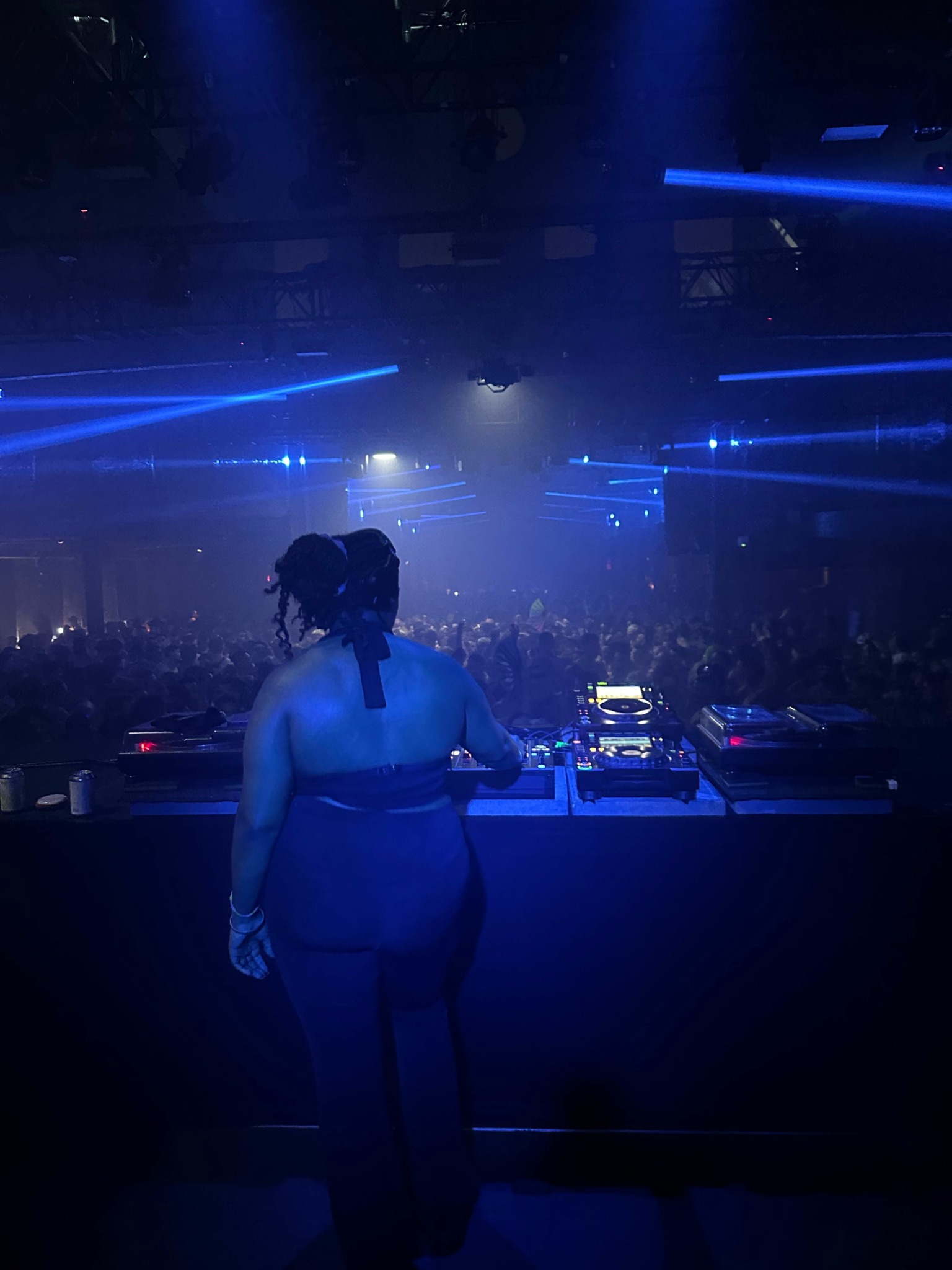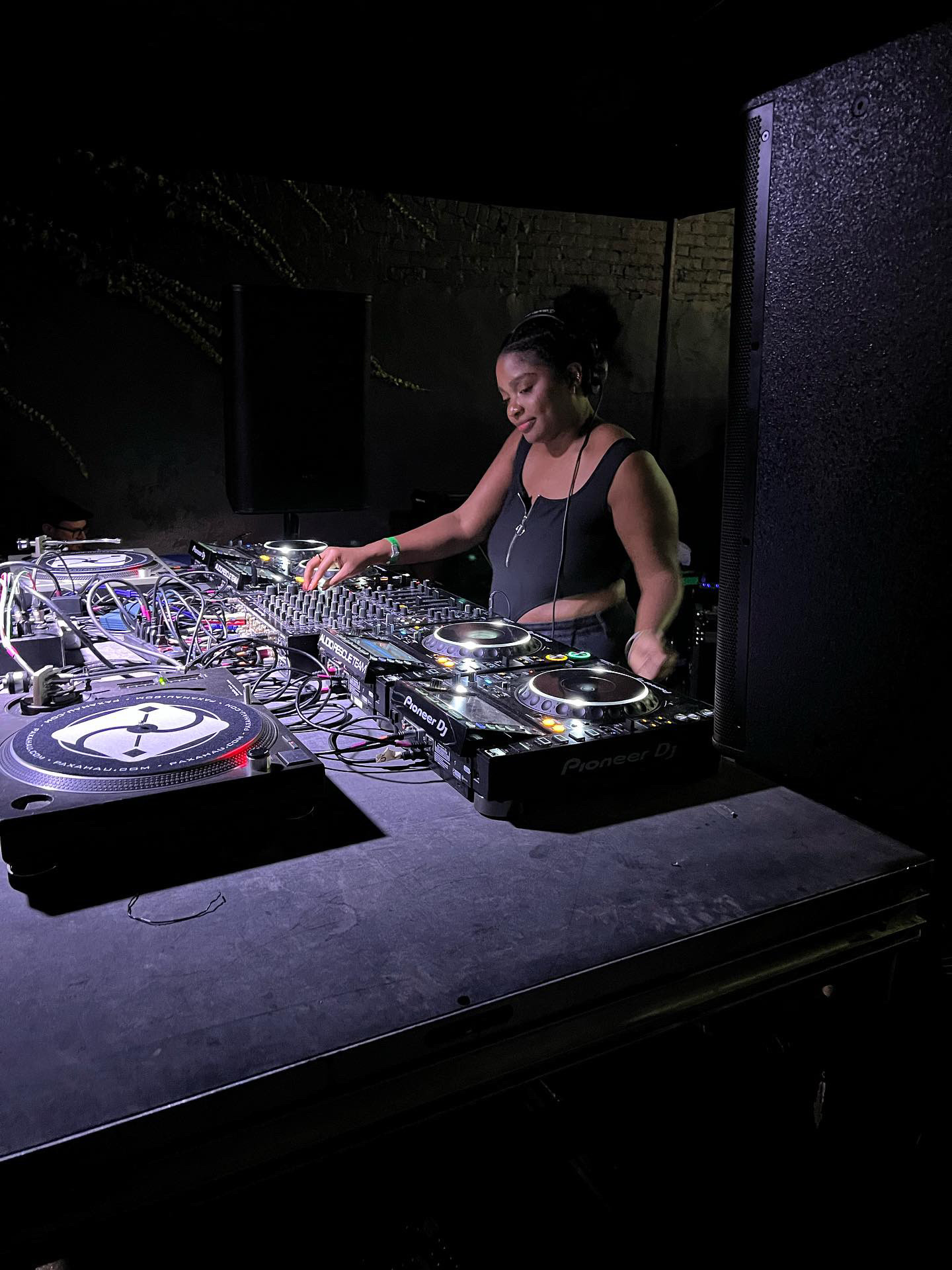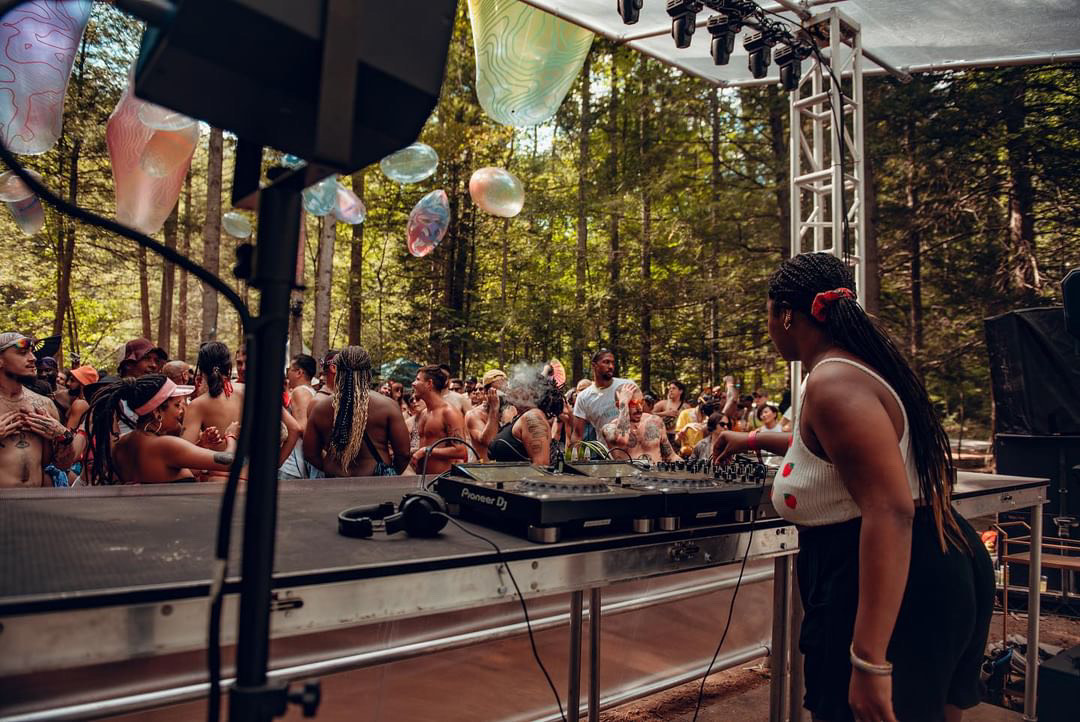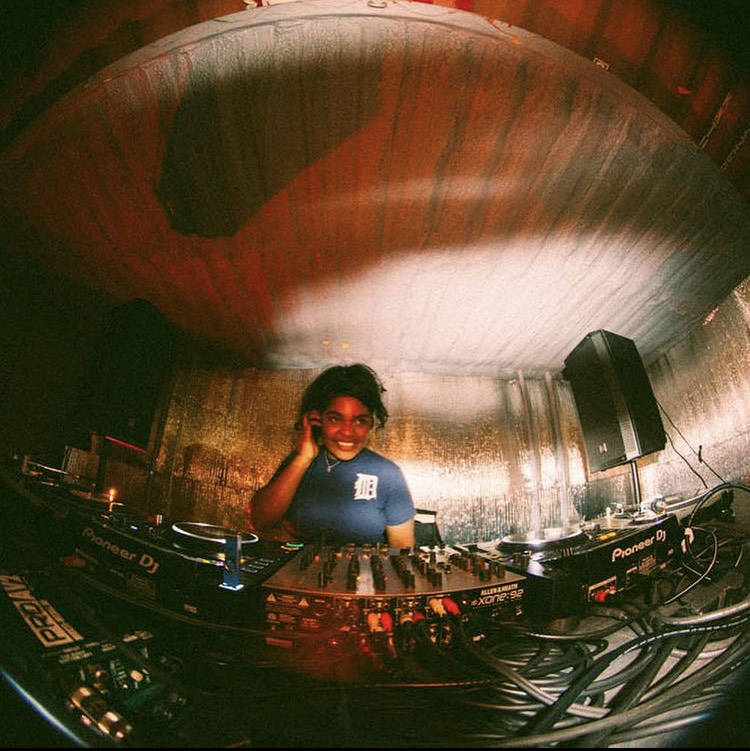We were lucky to catch up with Hailey Dukes recently and have shared our conversation below.
Hailey, thanks for joining us, excited to have you contributing your stories and insights. How did you learn to do what you do? Knowing what you know now, what could you have done to speed up your learning process? What skills do you think were most essential? What obstacles stood in the way of learning more?
I never had intentions of becoming a DJ initially! Many of my long time Michigan friends remark that I just kind of came out of nowhere with my DJing career and it honestly is a funny truth looking back. I am from Kent, Ohio and before I moved to Michigan for college, I did not have any experience with goign to electronic music shows, seeing djs perform, knowing that it was a career path to take or anything. Later in college, I would hitch rides out to Detroit to attend events and parties and shows for fun, and thats where I got my first real understanding of nightlife, I was lucky to learn in a place with so much rich history and timeless contribution to the broader culture of electronic music.
Later when I moved to Detroit I had a full time day job but was burning to develop a creative passion like so many of the people I was meeting who were opening my eyes to creative pathways I had never been exposed to or considered. I was always into writing, so I initially learned more about the local arts scene doing arts and culture journalism, and later saw a flyer for a DJing class for people who are not men, and I jumped at the chance to learn practical skills and make new friends in a new place! I took the class, called Beatmatch Brunch, led by DJ and multidisciplinary artist Mother Cyborg through the Seraphine Collective group which I became a part of, and later practiced and developed my skills solo after the class was over. The rest is history!
I think the most essential skill that I would never take for granted from learning specifically in Detroit is a foundation of the history of the music and its roots in Detroit and Black culture. This was not only a revelation for me to learn in my journey in DJing, but also to learn more about my own culture and its contributions and feel more connected to people like me and the amazing broad spectrum of black contributions to music overall. I am so grateful to have gotten my musical education here in a community so rich with history and future promise for electronic music. Another skill that I think is non-technical but essential is just resilience. I had and continue to have countless obstacles that have stood in the way of me wanting to continue on, but believing in yourself and what you’re doing and letting that fuel your passion to commit time, energy, emotional and mental space and to keep learning and growing is a lot of the battle.

Awesome – so before we get into the rest of our questions, can you briefly introduce yourself to our readers.
I really am an overall music lover so I play music of all kinds depending on what kind of event it is, what the atmosphere will be, what I am personally wanting to showcase and spotlight genrewise and what will challenge me. Even when there isn’t one, I love to create a whole theme and feeling for my sets to get me in the mood to select music and tailor a unique vibe to what i’ll be offering up in each different setting.
I DJ using CDJs, vinyl, and can use controllers like Traktor. For me personally, I think being able to use varied forms of equipment and mixers is really important. Each way of DJing has its own expansiveness and limitations that challenge you in a different way and I like to get my hands on everything I can to remain versatile and experience the influence that each different equipment type brings to your performance and the ways each different type tests my abilities.
I am most proud of just my overall ability to overcome the personal obstacles I have outside of DJing that complicate my ability to do so. They oftentimes go unseen and have always worked a full-time job outside of making time for my creative pursuits. A big part of DJing that will always be there is balance and moderation, and this spans from the time you make to pursue it, to the many potential pitfalls of constantly being in bars and clubs and the indulgences that can present themselves, balancing self-doubt with unrelenting confidence, balancing life responsibilities with going for a dream, balancing productivity with rest and recharge, balancing doing things alone and reaching out for help and guidance and assistance and so on. The juggling act never ends at least for me but I am proud of how thus far I have been able to continue to gain awareness of these dichotomies and nestle myself more comfortably within them while setting personal boundaries and goals and trying to be the best person I can be first and foremost.

What do you find most rewarding about being a creative?
I think the most rewarding aspect of being a DJ is meeting so many different kinds of people, being blessed to be able to travel and experience different cities and their histories and current cultural offerings, and remaining in awe of the wide spanning and deeply felt connection people all over the world have to this music. I think the music that comes out of a particular place or that is of interest in a particular place beyond the surface provides deep social commentary and historical perspective just like any other cultural offering and I love that there is always more to discover both in the current time and back further in time. Its almost like when it comes to music time is a bit suspended and you get to go digging around for undiscovered artists, stories, and songs both backwards and forwards at any given moment.

Are there any resources you wish you knew about earlier in your creative journey?
When you see DJs perform they are often alone on stage but at least for me, the biggest resource I have and think people should seek out is peers and mentors and all of the people who involve themselves in different ways to keep the music and events alive, especially the more community-centered and DIY events. I would implore new DJs to develop your own style and contribution to this thing of course, but its a big fallacy to think that you should be going at this alone. For me, having technical skill is very important but can only take you so far if you’re not connected to anyone else in meaningful ways that keep you all going and moving forward together. From sharing in success or challenges to helping advocate for yourselves, to learning about the business side of things to sharing priceless and ethereal moments in a crowd, or learning something new from a friend, it sounds kind of corny but I think some of the best resources we have in electronic music are the people around us who are there for us as both a person and an artist and unlocking those symbiotic relationships where each part is interested and invested in each others’ wellbeing. I believe this is much harder to build and maintain than technical ability to DJ and will take you the distance.
Contact Info:
- Instagram: @father___dukes
- Soundcloud: https://soundcloud.com/father-dukes
- Other: https://youtu.be/XQMxugf4OAo?feature=shared


Image Credits
@sidd_finch
@cody__loves__you
@evilewe


